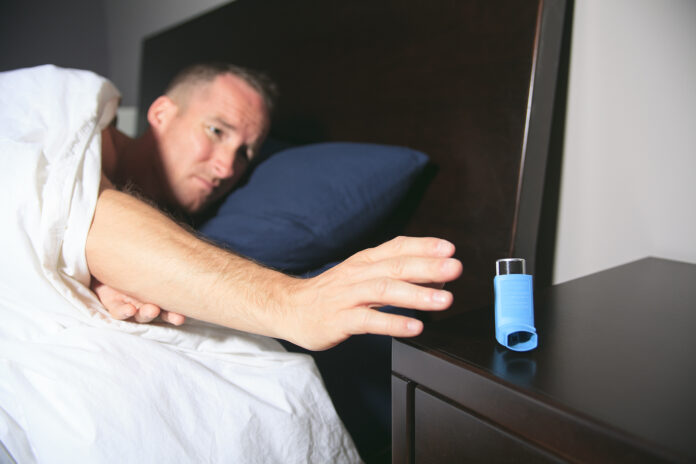
Observational research led by Shandong University in China suggests poor sleep can increase a person’s risk of developing asthma, particularly if they also have a genetic susceptibility to the condition.
Asthma is a chronic inflammatory condition impacting the respiratory system that affects millions of people around the world. While it can occur spontaneously, there are a range of genetic mutations that appear to increase someone’s risk of developing the condition.
Sleep disturbances commonly co-occur with asthma, but whether sleep quality and duration can impact a person’s risk for developing the condition is less clear.
As reported in the BMJ Open Respiratory Research journal, Fuzhong Xue, a professor at Shandong University, and co-authors carried out an observational study using data from the UK Biobank cohort involving 455,405 participants aged 38–73 years. The team assessed sleep, using a five-trait sleep score including: chronotype, sleep duration, insomnia, snoring and excessive daytime sleepiness, and genetic propensity for asthma using polygenic risk scores (PRS).
Over a 10-year period, 17,836 people were diagnosed with asthma in the cohort. The researchers found that people with the lowest scores for sleep quality had a 55% increase in risk for asthma relative to those with good sleep. Similarly, those in the highest PRS score group had a 47% increase in risk for the condition compared with those in the lowest.
Notably, when both sleep quality and asthma PRS were combined, those in the highest group for both traits had a two-fold increased risk for asthma compared with individuals with good sleep and low genetic risk. The researchers also showed that individuals with a healthy sleep pattern but high genetic susceptibility were 37% less likely to develop asthma than those with both poor sleep quality and high genetic risk.
“Mechanistically, several possible pathways could explain the role of sleep in the development of asthma. First, the negative impact of sleep disorders on asthma, which is generally considered a chronic inflammatory disease, might be mediated by sleep-induced chronic inflammation,” write the authors.
“In addition, chronotype, snoring and sleepiness were all shown to be associated with specific inflammatory reactions. In theory, the immune response to inflammation could generate proinflammatory cytokines that result in cellular infiltration and airway inflammation, further increasing the risk of asthma.”
Although this study was carried out in a large cohort of people, its observational nature and lack of knowledge about all possible confounding factors mean that it cannot be used as evidence that poor sleep causes asthma. But the findings are suggestive and indicate that “early detection and management of sleep disorders could be beneficial to reduce asthma incidence,” conclude the researchers.











